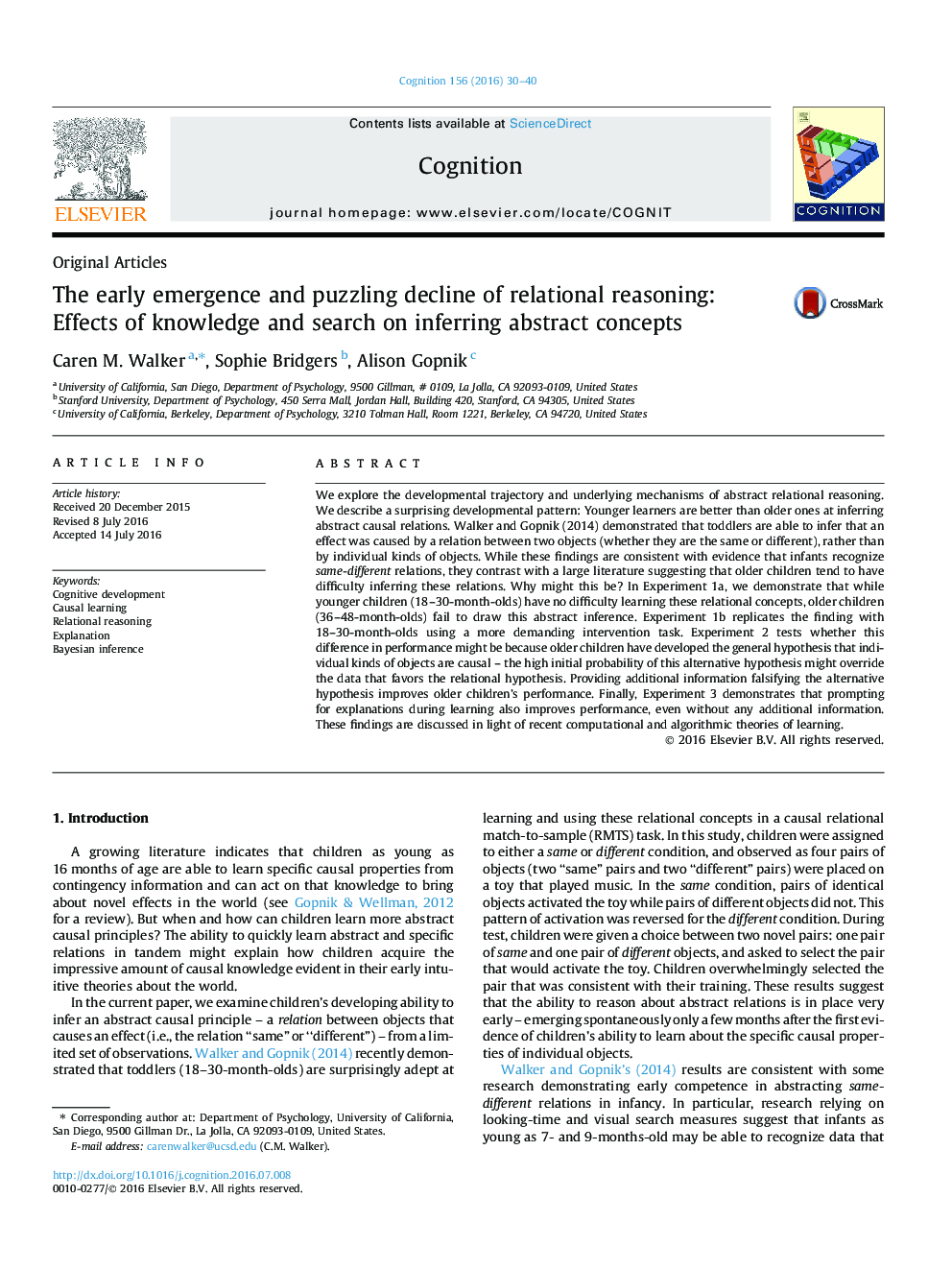| کد مقاله | کد نشریه | سال انتشار | مقاله انگلیسی | نسخه تمام متن |
|---|---|---|---|---|
| 926313 | 1474111 | 2016 | 11 صفحه PDF | دانلود رایگان |
• Younger learners outperform older ones at inferring abstract causal relations.
• Relational reasoning need not progress in a bottom-up manner.
• Older children develop a general principle to privilege individual object hypotheses.
• Prompting older children for explanations facilitates relational reasoning.
• The fact that younger children know less makes them more flexible learners.
We explore the developmental trajectory and underlying mechanisms of abstract relational reasoning. We describe a surprising developmental pattern: Younger learners are better than older ones at inferring abstract causal relations. Walker and Gopnik (2014) demonstrated that toddlers are able to infer that an effect was caused by a relation between two objects (whether they are the same or different), rather than by individual kinds of objects. While these findings are consistent with evidence that infants recognize same-different relations, they contrast with a large literature suggesting that older children tend to have difficulty inferring these relations. Why might this be? In Experiment 1a, we demonstrate that while younger children (18–30-month-olds) have no difficulty learning these relational concepts, older children (36–48-month-olds) fail to draw this abstract inference. Experiment 1b replicates the finding with 18–30-month-olds using a more demanding intervention task. Experiment 2 tests whether this difference in performance might be because older children have developed the general hypothesis that individual kinds of objects are causal – the high initial probability of this alternative hypothesis might override the data that favors the relational hypothesis. Providing additional information falsifying the alternative hypothesis improves older children’s performance. Finally, Experiment 3 demonstrates that prompting for explanations during learning also improves performance, even without any additional information. These findings are discussed in light of recent computational and algorithmic theories of learning.
Journal: Cognition - Volume 156, November 2016, Pages 30–40
